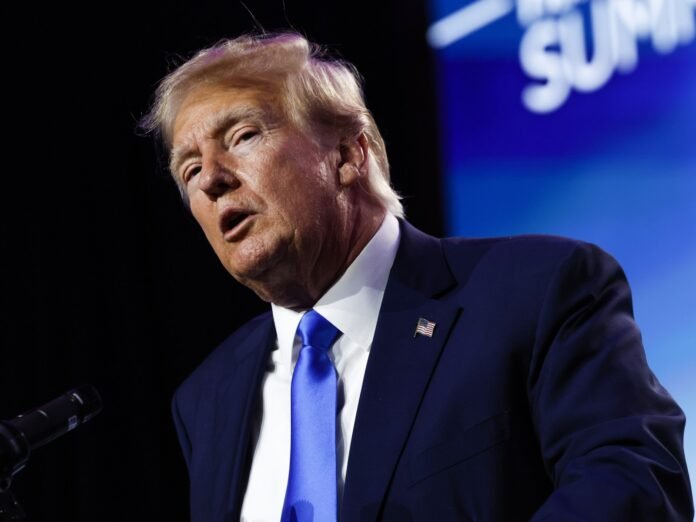Former U.S. President Donald Trump has claimed that Hamas would not have attacked Israel if he were still in office. Trump’s statement comes in the wake of the recent conflict in the Middle East, where tensions flared between Israel and Hamas, leading to rocket attacks, airstrikes, and a significant loss of life.
In a recent interview, Trump asserted that his approach to the Israeli-Palestinian conflict during his presidency would have prevented such an escalation. He pointed to his administration’s decisions, such as relocating the U.S. Embassy to Jerusalem, which was seen as a provocative move by Palestinians but celebrated by Israelis. Trump also highlighted the Abraham Accords, a series of agreements that normalized relations between Israel and several Arab countries.
The former President stated, “When I was in charge, we had the situation under control. We did things that no one else could do, including the historic Abraham Accords. If I were still President, I don’t think Hamas would have dared to attack Israel.”
Trump’s remarks have drawn both support and criticism. Proponents argue that his administration’s policies in the region led to a more stable and peaceful environment, while detractors point out the ongoing tensions in the Middle East and the complexities of the Israeli-Palestinian conflict.
The recent Hamas attacks on Israel have resulted in a significant loss of life, with casualties on both sides. The international community has called for an immediate ceasefire and expressed concerns about the escalation of violence. The United Nations has urged all parties to show restraint and prioritize the protection of civilians.
Israel has retaliated with airstrikes in Gaza, targeting alleged Hamas military sites. These retaliatory actions have raised concerns about civilian casualties and the humanitarian situation in the Gaza Strip, an area already suffering from severe economic hardship.
Israel has faced criticism for the destruction caused by its airstrikes, while Hamas has been condemned for launching rockets into civilian areas. The situation remains complex, with both sides claiming the right to defend themselves and pursuing their own narratives.
Trump’s Political Conspiracy
Trump’s comments have been met with mixed reactions from political leaders. Some members of his own party have supported his assertion that his approach would have prevented the current crisis. Meanwhile, others argue that the situation is more intricate than suggested by a single policy or administration.
The Israeli-Palestinian conflict is one of the most prolonged and complicated conflicts globally, rooted in historical, territorial, and ideological disputes. While international leaders and diplomats continue to seek a peaceful resolution, challenges remain, making the region’s stability a subject of global concern.
The Biden administration has expressed its support for Israel’s right to defend itself against rocket attacks while also urging restraint and de-escalation. The United States remains committed to a two-state solution, envisioning an independent Israel and Palestine living side by side in peace and security.
Efforts to broker a ceasefire and bring an end to the recent hostilities are ongoing. International pressure for a peaceful resolution remains high, with countries and organizations around the world working to mitigate the suffering of civilians and prevent further loss of life.
In the midst of these efforts, Donald Trump’s statement highlights the deep-seated divisions in the United States and the challenges of finding a consistent and bipartisan approach to the Israeli-Palestinian conflict. The situation underscores the complexity of international diplomacy and the difficulty of resolving deeply entrenched disputes in the region.
